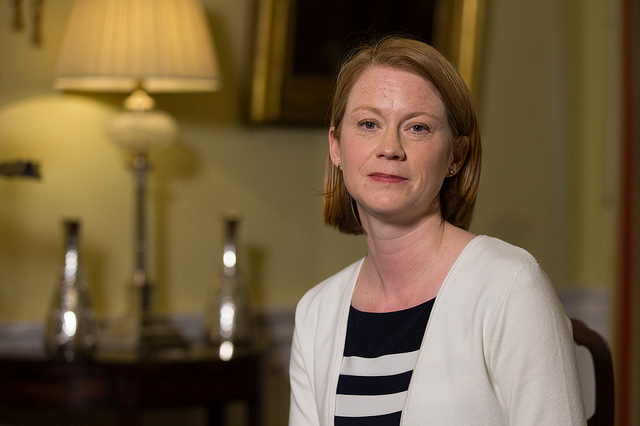Causal link between Universal Credit and homelessness outlined in government report
Problems with the five-week wait to receive the first Universal Credit payment and sanctions which lead to payments being withdrawn if claimants don’t meet certain conditions have directly contributed towards homelessness in Scotland, a new report has revealed.

Social security secretary Shirley-Anne Somerville
Analysis from the Scottish Government contained within the report, titled Homelessness and Universal Credit, shows that Universal Credit has resulted in some tenants being forced into rent arrears and evictions, and has contributed to relationship and mental health problems.
The report also found that the Universal Credit caseload has nearly doubled since the beginning of 2020, meaning more people than ever are at risk of being negatively affected.
Social security secretary Shirley-Anne Somerville said: “While a variety of circumstances can contribute to homelessness, this report paints a stark picture of how people can be plunged into poverty by a poorly executed social security system.
“The UK welfare system must be made fit for purpose with damaging reforms reversed. It is disappointing the UK Government plans to cut the £20-per-week uplift in Universal Credit payments in six months’ time and that they have refused to expand it to legacy benefits.
“Despite predictions of an increase in unemployment of half a million across the UK, unemployment support is being cut to its lowest level since 1990, and the decision to freeze local housing allowance rates from April 2021 will push more people into poverty and put them at risk of homelessness.”
The five-week wait for Universal Credit can push many households into financial difficulties, particularly when a claim is likely to have followed job loss or another change of circumstance.
Research published by the Joseph Rowntree Foundation in 2020 found a strong link between Universal Credit and destitution, with the five-week wait cited as the most problematic aspect. Analysis conducted by the charity Crisis found that homeless people are twice as likely to have had sanctions, where benefits are reduced or stopped when a claimant has broken conditions such as missing appointments, or not looking for work.








